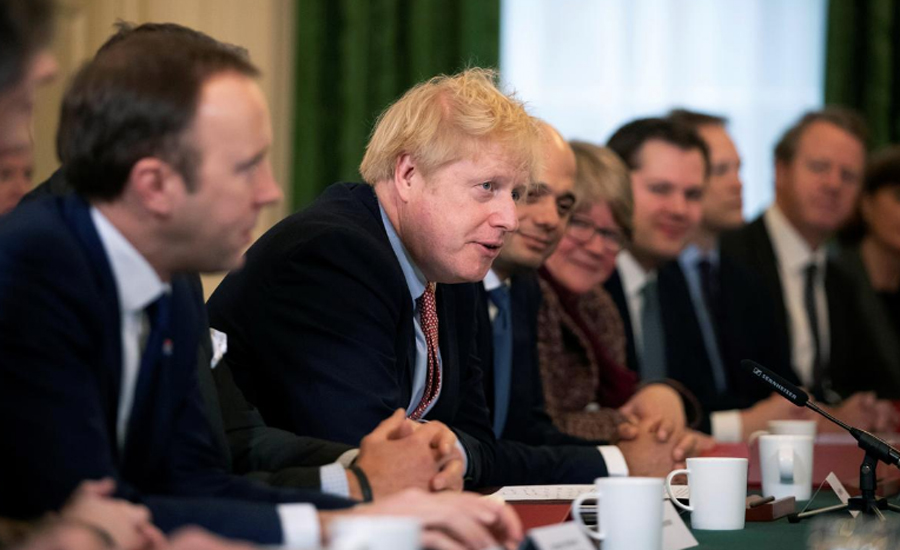Britain threatens Brexit cliff-edge to force EU trade deal by December 2020

LONDON (Reuters) – Britain set a hard deadline of December 2020 on Tuesday to reach a new trade deal with the European Union, betting that the prospect of another Brexit cliff-edge would force Brussels to move more quickly than usual to seal an accord.
Johnson will use his control of parliament to outlaw any extension of the Brexit transition period beyond 2020 - his boldest move since winning a large majority in last Thursday’s election, and one that spooked financial markets.
In Brussels, officials said the timetable was “rigid” and likely to limit the scope of any deal.
“Our manifesto made clear that we will not extend the implementation (transition) period and the new Withdrawal Agreement Bill will legally prohibit government agreeing to any extension,” a senior government official said on Tuesday.
Asked if the government would legislate to rule out any extension of the transition beyond 2020, one of Johnson’s most senior ministers, Michael Gove, said: “Exactly, absolutely.”
After the United Kingdom formally leaves the European Union on Jan. 31, it enters a transition period in which it remains an EU member in all but name while both sides try to hammer out a deal on their post-Brexit relationship.
“With absolute clarity on the timetable we are working to, the UK and the EU will be able to get on with it,” Johnson’s spokesman said.
A comprehensive free trade deal would encompass everything from financial services and rules of origin to tariffs, state aid rules and fishing, though the scope and sequencing of any future deal is still up for discussion.
“CLIFF EDGE”
Early EU responses to the move were guarded.
“We haven’t even started those negotiations but this provides for a very rigid time frame, which reflects that certain things will be out of reach,” EU Commission Vice President Valdis Dombrovskis said.
Sabine Weyand, director-general of the EU’s trade department, told a European Policy Centre think tank seminar that negotiations would have to focus on those issues vital to prevent “another cliff-edge situation”.
Weyand said the European Commission, which coordinates trade policy for EU countries, was ready to start negotiations very quickly after Britain formally left the EU on Jan. 31 and was very clear about its priorities.







